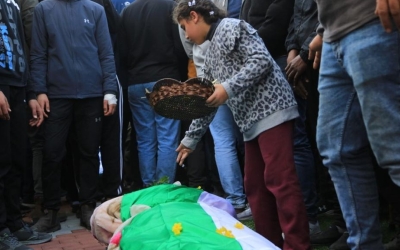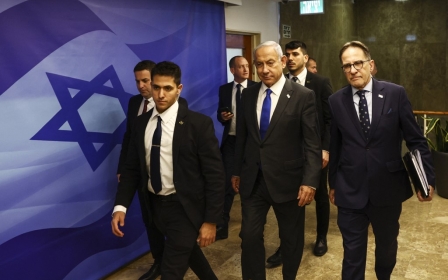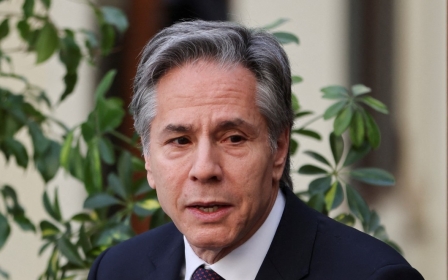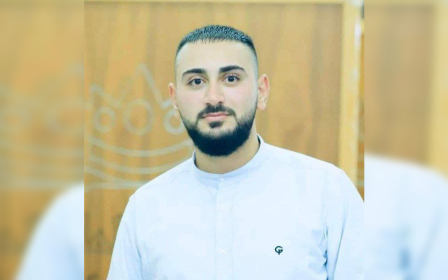Israeli forces shoot Palestinian man dead in central Hebron
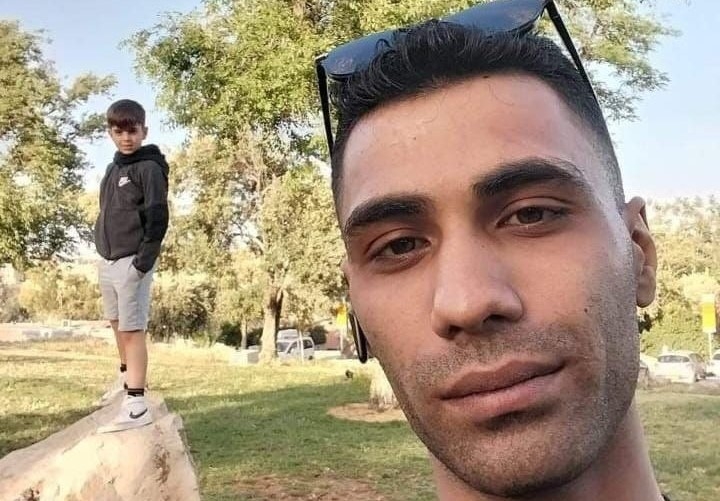
Israeli forces shot dead a Palestinian man in the West Bank city of Hebron on Monday, the Palestinian health ministry said.
Nassim Abou Fouda, 26, succumbed to his wounds after being shot in the head in the Israeli-occupied city, the ministry said.
Palestinian media said Abu Fouda was in a vehicle in central Hebron near the Ibrahimi Mosque when soldiers at a military checkpoint opened fire on him.
Over the past year, Israeli violence against Palestinians in the occupied West Bank has been getting more deadly and frequent, prompting a rise in armed Palestinian resistance.
In recent days, tensions have been at a high, after an Israeli raid on Jenin refugee camp on Thursday killed nine Palestinians. The next day, a Palestinian killed seven Israelis in a settlement in occupied East Jerusalem.
The latest killing comes as US Secretary of State Antony Blinken began a Middle East trip in Cairo on Monday, which will also see him head to Israel and occupied Palestine.
"We've seen horrific terrorist attacks in the last couple of days that we condemn and deplore," he told Saudi state broadcaster Al Arabiya on Monday. "The most important thing in the near term is to try to get some calm."
Blinken is due to land in Tel Aviv to meet Israeli Prime Minister Benjamin Netanyahu on Monday afternoon, ahead of meeting Palestinian President Mahmoud Abbas on Tuesday.
At least 32 Palestinians have been killed by Israeli forces since the beginning of January.
Last year, more Palestinians were killed by Israeli forces in the West Bank and East Jerusalem than in any single calendar year since the Second Intifada.
At least 220 people died in Israeli attacks across the occupied territories in 2022, including 48 children.
Of the total death toll, 167 were from the West Bank and East Jerusalem, and 53 were from the Gaza Strip.
Meanwhile, last year Palestinians killed at least 29 Israelis, including one child, the highest death toll since 2008.
Middle East Eye propose une couverture et une analyse indépendantes et incomparables du Moyen-Orient, de l’Afrique du Nord et d’autres régions du monde. Pour en savoir plus sur la reprise de ce contenu et les frais qui s’appliquent, veuillez remplir ce formulaire [en anglais]. Pour en savoir plus sur MEE, cliquez ici [en anglais].


